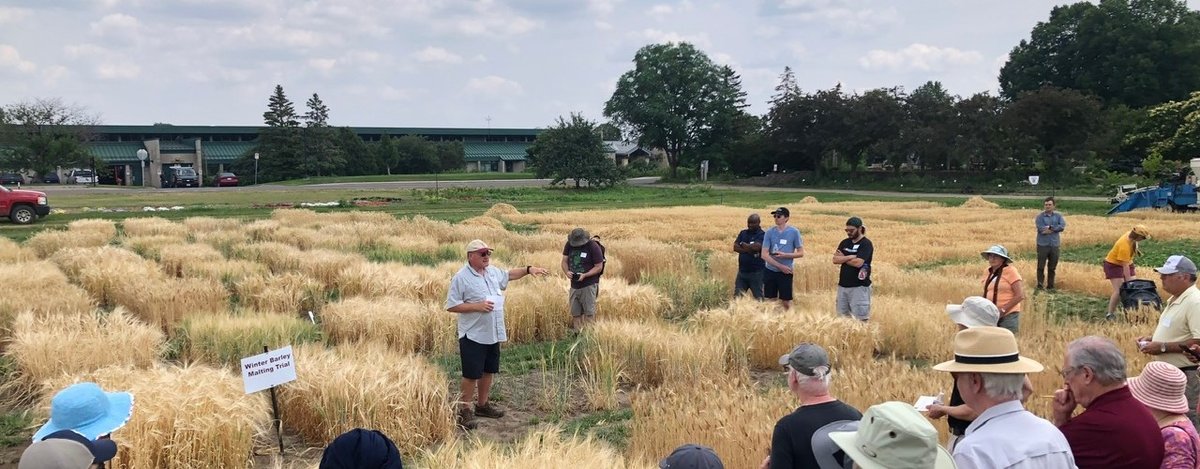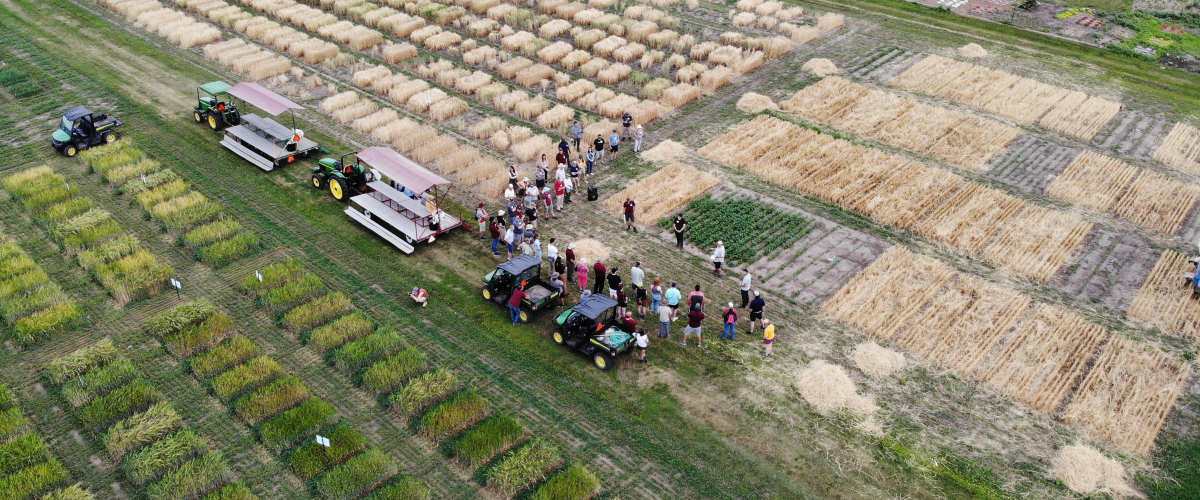
Barley U Field Day 2023 showcases exciting advances in crop development

NETANYA SADOFF, ENVIRONMENTAL SCIENCES, POLICY AND MANAGEMENT, B.S. '25
June 30, 2023–
This month, CFANS’ department of Agronomy and Plant Genetics hosted its annual Barley U Field Day event. A fun-filled afternoon full of tractor rides, educational presentations, and of course, beer and refreshments awaited the event guests and participants.

Located at the St. Paul Campus’ Cargill Building of Microbial and Plant Genomics, CFANS professor Kevin Smith hosted the event, detailing the year’s advances in barley research, especially in regards to sustainability and crop development:
- Of current barley research, much is devoted to developing strains of winter barley: an environmentally-friendly version of the crop used as ground cover during winter to reduce soil erosion
- Unlike most crops, winter barley is planted in the fall and harvested in the spring. This allows farmers to “double crop”: they can grow two different crops at different times of the year on the same plot of land
- Two-row barley has overtaken six-row barley in popularity due to the craft brewing industry
- Kevin Smith, professor of plant science, says “Six-row barley was predominantly favored in the US by large brewers; two-rows were mainly grown in the western US, but there has recently been a major shift to all two-row. Even the biggest brewers want to use two rows. The craft brewers have always used two-row…so our growers have started shifting that way.”
- Two-row barley is traditionally best suited for western climates, but because of advances in plant breeding it can now thrive in a greater variety of climates, including Minnesota’s.
- There’s a new strain of barley on the market developed by the University of Minnesota: MN-Equinox
- MN-Equinox is the first strain of winter barley ever developed at the University Minnesota!
- MN-Equinox is a 6-row winter barley, released in 2022. It had its first commercial harvest last spring.
- MN-Equinox is facultative, meaning it can be planted in either the spring or fall, giving growers flexibility in planning their rotations and adapting to weather conditions
Learn more about sustainable barley development at the University of Minnesota through our department of Agronomy and Plant Genetics





